News

Two harsh realities of accessing tech jobs while working at a workforce center
When it comes to facilitating tech opportunities for clients, it is evident that many workforce centers are still navigating the complexities. The vast array of careers within the tech industry can be challenging to define and comprehend for individuals outside of the field. The typical employment counselor or job developer at a workforce center may not have a deep understanding of the intricacies of the tech sector. Here are two realizations I encountered during my time as an employment counselor and job developer at a workforce center.
I wasn’t trained to help my clients get into tech
In my time as an employment counselor, I used to meet many clients who were interested in pursuing a career in tech. To support them, I would register them for a career exploration workshop and a decision-making one-on-one appointment with me, which was a standard and common approach by many employment agencies. The career exploration workshop, served as a determining factor for assessing whether or not a career in tech is truly for them. The one-on-one appointment involved reviewing different technology programs at the local community colleges and choosing one that matched their interests and abilities. Despite my support, this did little to guide them into tech. In fact, many changed their minds and cited that the options weren’t clear, and the paths towards a career in tech was limited. As I learned more about the branches of tech (or what I call the specializations), the different skills and the multitude of career opportunities in tech, I realized that guiding a client towards a tech career, is harder than other careers. You see, tech is multilayered, many of the careers overlap and intertwine with each other, and for some careers the certifications often outweigh a diploma from a community college. This can present a lot of confusion to career counselors who aren’t familiar with acquiring the skills to break ground into tech.
My lack of tech industry knowledge made it difficult to get placements
In 2014, I had the pleasure of meeting the owner of a web development company. Our first phone call went really well, he shared the job details and scheduled a meeting for us to connect in-person for the following day. When we met in person, I shared the resumes from the applicants in my pipeline. That's when things got a bit tricky - he asked about the applicants' technology and programming languages, which I was a bit confused about. I ended up saying “they were good with computers and making websites. . and for languages, they speak English, Hindi, and Farsi, but I don't know what language they learned their computer skills in”. The owner realized I was lost in translation, but he replied very gracefully. He kindly suggested that he would review the resumes on his own and get back to me. Unfortunately, I never heard from him again. During my early days as a tech job developer at a workforce organization, I encountered many scenarios like this one. Things started looking up when I created a mental map of tech skills and familiarized myself with key tech terms. This made chatting with tech employers a breeze and landing tech placements a piece of cake.
Learning about the careers, skills and routes to tech is key
Having a skilled and passionate tech career counselor can really make a difference for workforce centers looking to help their clients break into the tech industry. This counselor will know all the best ways to get tech skills training and can guide their clients towards the most effective paths. And when it comes to landing job placements, job developers need to be able to talk the talk with employers. It's not just about knowing the technical skills – they also need to understand the ins and outs of tech company culture.

